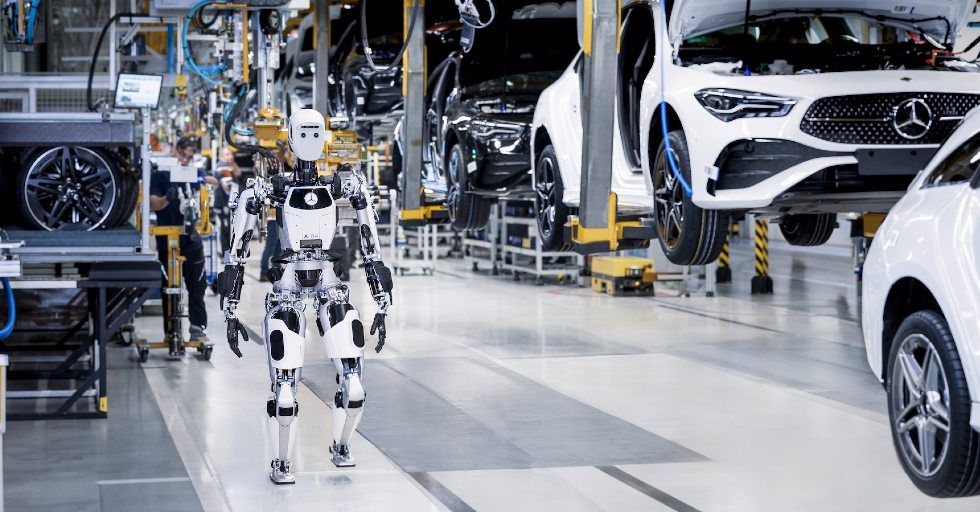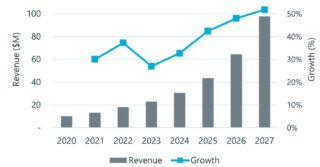Mercedes-Benz is testing humanoid robots on its production lines to help perform physically demanding tasks. The company joins BMW and Tesla in the automotive sector, which already have pilot programmes of the technology.
Apptronik notes that humanoid robots allow carmakers to automate production processes without having to reconfigure existing factories. The company emphasises that its solution focuses on automating manual, monotonous and repetitive tasks for which it is increasingly difficult to find robust workers.

Photo source: Apptronik
According to the Financial Times, Mercedes has begun testing robots called Apollo at its factory in Hungary, a country struggling with a labour shortage caused by migration to Western Europe.
The carmaker first unveiled the robots in August 2023, making it one of the pioneers in the humanoid industry alongside the likes of Agility Robotics and Tesla. According to Apptronik, the robots can lift objects weighing up to 25kg.
The robotics market is now entering the next stage of development. For manufacturers of humanoid robots, it is now important to move from early testing to gaining reference customers who can verify the usability of their machines and help develop further plans.
The automotive industry, at the forefront of global automation, provides an ideal environment for testing humanoid robots. The need to improve quality and reduce costs, as well as staffing issues in this manufacturing sector, are driving the testing of new technologies, such as humanoids, which will be the next major step in the automation of automotive production and beyond.
Several innovative solutions are being tested on a global scale. Tesla is using Optimus robots in its factories, BMW is working with Figure, and Agility Robotics is running pilot projects with Amazon and GXO Logistics with its Digit robot.


![Forecasts, Opportunities, and Challenges for the Polish Industry in 2024 [ANALYSIS] Forecasts, Opportunities, and Challenges for the Polish Industry in 2024 [ANALYSIS]](https://industryinsider.eu/wp-content/uploads/xIndustry-40-320x167.jpg.pagespeed.ic.o8zijDQlIJ.jpg)
![The importance of artificial intelligence in transport and automotive industry is growing [REPORT] The importance of artificial intelligence in transport and automotive industry is growing [REPORT]](https://industryinsider.eu/wp-content/uploads/xcity-320x167.jpeg.pagespeed.ic.xFkQdk7qXO.jpg)
![By 2030, the market size of metal processing tools is expected to reach $120.44 billion [REPORT] By 2030, the market size of metal processing tools is expected to reach $120.44 billion [REPORT]](https://industryinsider.eu/wp-content/uploads/xcutting-tools-320x167.jpg.pagespeed.ic.SgnEk-RWA-.jpg)
![Methane emissions remains elusive challenge for oil and gas industry [REPORT] Methane emissions remains elusive challenge for oil and gas industry [REPORT]](https://industryinsider.eu/wp-content/uploads/xMethane-emissions-by-source-320x167.jpg.pagespeed.ic.q-7jG2luXb.jpg)

![Will digital twin revolutionize the aerospace and defense sector? [REPORT] Will digital twin revolutionize the aerospace and defense sector? [REPORT]](https://industryinsider.eu/wp-content/uploads/xdigital-twin-in-aerospace-320x167.jpg.pagespeed.ic.K-YNPhggcS.jpg)